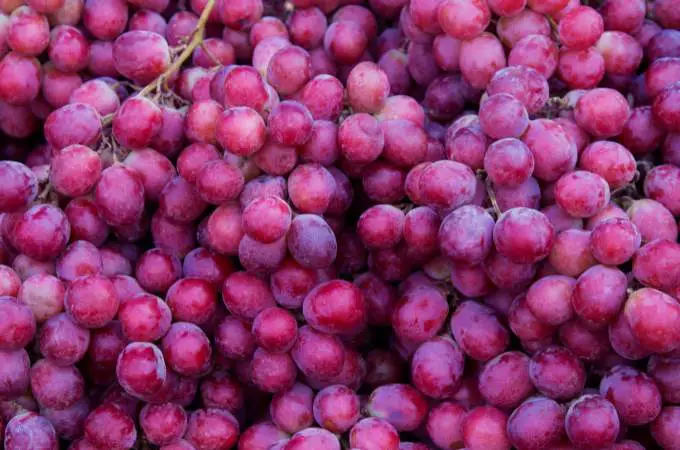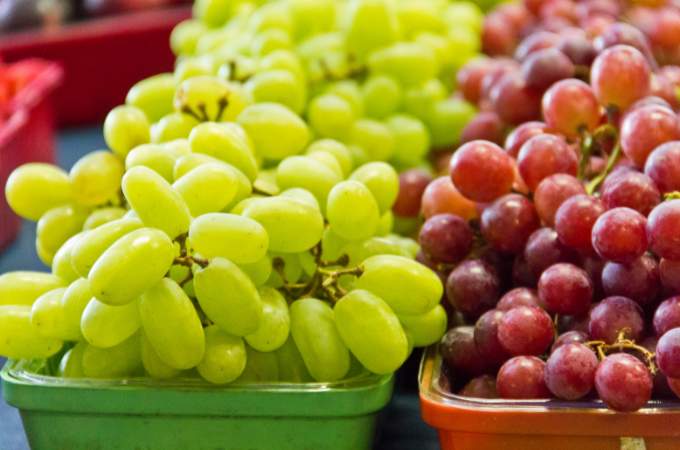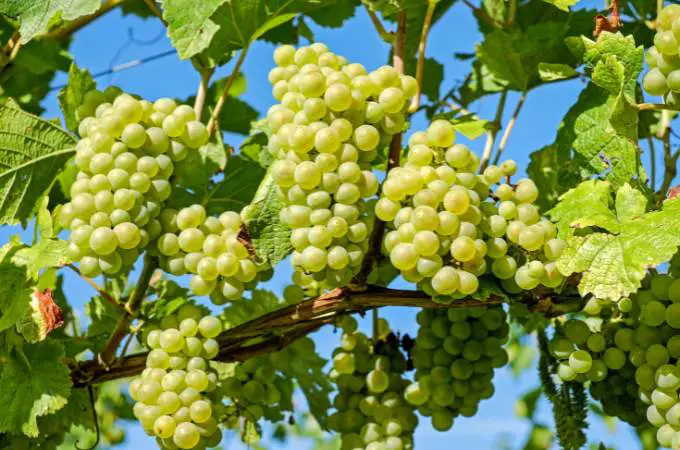
Grapes, a common fruit enjoyed by many, often find their way into our kitchens. But when it comes to our small, furry friends like gerbils, is it safe for them to partake in this sweet treat? This article aims to provide comprehensive insights into whether gerbils can safely consume grapes, focusing on their nutritional needs, potential benefits, and risks.
Gerbils are omnivorous creatures, which means their diet can include both plant-based and animal-based foods. In the wild, they typically consume a variety of seeds, grains, insects, and occasional fruits and vegetables. It’s crucial to understand their natural dietary habits to ensure we provide them with a balanced and healthy diet in captivity.
Nutritional Profile of Grapes
Grapes are known for their high water content and are a good source of vitamins, particularly Vitamin C and Vitamin K. They also contain antioxidants and essential minerals like potassium. However, they are high in sugars, which is a significant factor to consider when feeding them to gerbils.
Benefits of Feeding Grapes to Gerbils
In moderation, grapes can be a healthy snack for gerbils. The vitamins and minerals in grapes can contribute to the overall health of your gerbil, supporting their immune system and aiding in various bodily functions. The water content in grapes can also help in keeping them hydrated.
Risks and Precautions
Despite their nutritional benefits, grapes should be given to gerbils with caution. The high sugar content can lead to obesity and dental problems if consumed in large quantities. Additionally, grapes have a small amount of acidity, which might not suit all gerbils, especially those with sensitive digestive systems.
It’s also important to consider the size of the grape in relation to the gerbil. Large pieces can pose a choking hazard, so it’s advisable to cut the grapes into smaller, manageable pieces.
You might also like: Can Gerbils Eat Apples?

Recommended Quantity and Frequency
When introducing grapes into your gerbil’s diet, it’s best to start with a small piece to see how they react. If there are no adverse effects, you can gradually offer them as a treat. However, grapes should not make up a large part of their diet. A small piece once or twice a week is sufficient.
Practical Tips for Feeding Grapes to Gerbils
- Always wash the grapes thoroughly to remove any pesticides or chemicals.
- Cut the grapes into small pieces to prevent choking hazards.
- Monitor your gerbil for any signs of digestive upset or allergic reactions.
- Combine grapes with other gerbil-friendly fruits and vegetables for a varied diet.
Selecting the Right Grapes for Your Gerbil
When choosing grapes for your gerbil, it’s important to select the right type. Organic grapes are preferable as they are less likely to contain harmful pesticides. Seedless grapes are also a better choice to avoid any risk of intestinal blockage or choking. Remember, the fresher the grapes, the better, as they retain more nutrients and are generally safer for your pet.
The Role of Grapes in a Gerbil’s Diet
While grapes can be a delightful treat, they should only play a small role in your gerbil’s overall diet. Gerbils require a balanced diet consisting mainly of gerbil-specific pellets, which are formulated to meet all their nutritional needs. Grapes and other fruits should be considered as supplements to this diet, providing variety and additional nutrients that may not be present in their main food.
How to Introduce Grapes to Your Gerbil
Introducing any new food to your gerbil should be done gradually. Start by offering a tiny piece of grape and observe your pet over 24 hours for any signs of digestive distress or allergic reactions. If your gerbil tolerates the grape well, you can slowly increase the amount over time. However, always adhere to the recommended frequency and portion size to avoid health issues.
You might also like: What Can Gerbils Eat?
Monitoring Your Gerbil’s Health

After introducing grapes into your gerbil’s diet, it’s important to monitor their health and behavior. Look for signs of enjoyment and eagerness to eat the treat, which indicates that they like the taste and it agrees with their system. On the flip side, watch for any negative reactions such as diarrhea, lethargy, or changes in appetite, which could signal that grapes are not suitable for them.
Alternatives to Grapes
If you find that grapes are not a good fit for your gerbil, or you simply want to provide a variety of treats, there are many other fruits and vegetables that are safe for gerbils. Apples (without seeds), carrots, and cucumbers are some examples. These can be given in moderation, similar to grapes, to ensure a balanced diet.
The Importance of a Balanced Diet
While treats like grapes can add interest to your gerbil’s diet, the importance of a balanced, nutritionally complete diet cannot be overstated. Gerbils need a mix of proteins, fats, carbohydrates, vitamins, and minerals for overall health. A diet that leans too heavily on treats, even healthy ones like grapes, can lead to nutritional imbalances and health issues.
Engaging Your Gerbil with Grape Treats
Feeding grapes can also be an interactive experience with your gerbil. Use this treat time to bond with your pet. You can hand-feed the small pieces of grape, which helps in building trust and strengthening your relationship with your gerbil. This interaction also allows you to closely observe your pet’s reaction to the treat, ensuring they are enjoying it safely.
Final Thoughts
In summary, while grapes can be a healthy and enjoyable treat for gerbils, they should be given with care and in moderation. Always prioritize a balanced diet, introduce new foods gradually, and closely monitor your pet’s reaction. By following these guidelines, you can safely incorporate grapes into your gerbil’s diet as a special treat.









